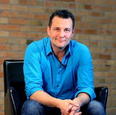The Freedom and Power of Accountability
(Part 2 of 3)
Lets pick up where we left off in part one, which was an assignment to simply become conscious of where in your life you blame others and where in your life you blame yourself. Once you become more conscious of your tendency to assign blame the objective is to let go of the blame (if possible for you) and see how it feels.
The truth is, for most people, this activity is an exceptionally difficult task. Most of us have been hard wired to blame. There must be someone or something at fault. Suffice it to say that if we can begin to release this idea we can let go of the emotional energy and weight that blame causes in our lives. What we are aiming for is the experience of truly accepting what is.
I know, I know. For many of you your brain is going, “but there are things that are other peoples’ fault. I have the right to blame them!” Sure there are terrible, awful and painful things that happen in our world and yes you have the right to blame them. However, accountability has nothing to do with the belief that you have the right to blame someone (or self). Of course you do! The more important question, “Is it your wisest choice to consume your precious life energy blaming yourself or others?”
If we choose to continue to blame, we project our life experiences outside of ourselves where we have no power, or internally where we diminish and demean ourselves. From either of these positions we cannot learn the lessons or move forward in our life. We can only stay stuck.
Clearly, the first step of accountability is to let go of the idea of blame, which lays the foundation for honest and objective self exploration.
Accountability asks a vitally important question that assists us to frame our learning experiences in all circumstances. The question is, “What are the choices I made to co-create this experience in my life?” When examining your choices here are some clues that can assist:
1) Use accountable language; I, me, my
2) Do not blame self or others
3) Start earlier in time. There are always choices that we made weeks, months and years before our difficult or challenging experiences
4) Let go of the emotions attached to the situation. Experience and observe without judgment
5) Be sure to include any intuitive hits, or physical reactions, that you may have dismissed or not paid attention to at the time
Next question, “What is my life lesson in this experience?” Only after answering this question can we really move forward to the power of accountability. The key to ongoing empowerment and personal evolution is interpreting and applying the lessons in our life.
The application of the lesson will be the topic of the next article. Until then, practice answering the question “What are the choices I made to co-create this experience in my life?” Be sure to answer the question in areas of your life where things are going great and in areas where things are not so terrific. There are significant lessons in both circumstances.
To be continued...
Jay Fiset is the President of Personal Best Seminars Inc. a Personal Development company with over 25,000 grads. He is the published author of Reframe Your Blame: How to be Personally Accountable.
You can read more about this book, or order it at http://www.reframeyourblame.com
http://www.personalbestseminars.com
Check out our latest online newsletter at:
http://www.personalbestseminars.com/weeklynewsletters/default.html

Post new comment
Please Register or Login to post new comment.